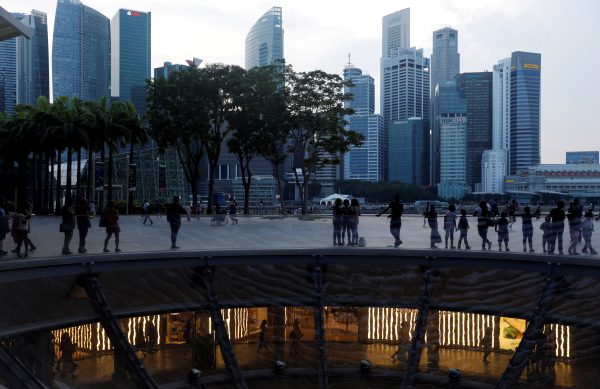Major socioeconomic indicators suggest that Singapore has managed the global uncertainty reasonably well. GDP growth for 2019 is expected to be about 1 per cent, while inflation for the year is estimated at 0.6 per cent. By comparison, IMF estimates of the same indicators for advanced economies are 1.7 per cent and 1.5 per cent respectively.
The overall unemployment rate and that of the resident labour force (referring to citizens and permanent residents only) are just marginally higher than in 2018. This was despite a consistent fall in external demand — a major driver of Singapore’s economic growth — over the year. Preliminary indications show that the unemployment increase is primarily structural, a result of changing skillset demands as the country continues to transform its economic structure. Notably, official labour surveys report continued aggregate income gains, albeit accruing more to the 3rd to 9th deciles.
The ruling party reaffirmed a continuing need and commitment on the part of policymakers to enhance trust with the population to ensure the success of leadership renewal and progress. A case of misuse of funds for public maintenance works and the early announcement of a forthcoming increase in the goods and services tax (GST) were two contrasting examples used to emphasise how public sector actions affect public trust.
Moving forward, the public wants more assurances in the form of safeguards and support against unanticipated outcomes from global and domestic events. This desire is well-illustrated by requests for greater specificity in recent legislation aimed at mitigating the proliferation of misinformation across digital networks, and by the responses to a ban on personal mobility devices in November.
The 2019 government budget announced a range of transfers to households — notably the establishment of the S$6.1 million (US$4.5 million) Merdeka Generation Fund for citizens born between 1950 and 1959 and incentives for enterprise development. These measures will serve to mitigate some of the immediate concerns emanating from an uncertain global economic environment. To enhance old-age income security, phased-in increases in contribution rates for employers to the country’s main retirement-financing scheme, the Central Provident Fund (CPF), and to the statutory retirement age were subsequently announced in the Prime Minister’s National Day rally speech.
Policymakers’ preferences remain focused on skills upgrading and job creation to facilitate socioeconomic security. But the extent to which this and other measures announced over the year will address income security concerns over the long term remains unclear. Two observations bear out the ambiguity.
First, despite increasing life expectancy, evidence suggests that individuals are likely to spend more years in ill health. This compromises the extent that the announced changes to employer–CPF contribution rates and the statutory retirement age can effectively serve their intended aims. Second, the latest Household Expenditure Survey reports that retiree households (over-65 households with no working-age individuals) typically derive less than a quarter of their income from accumulated CPF balances. Contributions from family members often form a more substantial source of income.
These observations also suggest that households and individuals bear more risk than is socially desirable. This renders women — who typically have shorter working lifespans and greater longevity — and single-income households particularly vulnerable to post-retirement inadequacy.
The case for establishing greater safeguards against adverse events is highlighted by studies that outline elderly expenditure needs, factors contributing to post-retirement inadequacy and the presence of homelessness in Singapore. As a start, these needs can be straightforwardly provided for by the introduction of a budget-financed social pension and by increasing social risk pooling through the use of social insurance instead of through commercial principles in the national basic catastrophic health and disability insurance schemes. The corresponding impact on public finances would likely be minimal.
Attention in early 2020 will focus on when the next general election will take place. But with global economic uncertainty likely to continue over the year, policymakers will need to assuage its effects on domestic socioeconomic insecurity and continue to plan for the transformation of Singapore’s economy. These undertakings are not competing but instead have the potential to be complementary.
Chang Yee Kwan is a Non-Resident Fellow at the Center for Southeast Asian Studies, National Chengchi University, Taipei.
Kelvin Lee is a Lecturer at the Centre for University Core, Singapore University of Social Sciences.
This article is part of an EAF special feature series on 2019 in review and the year ahead.

